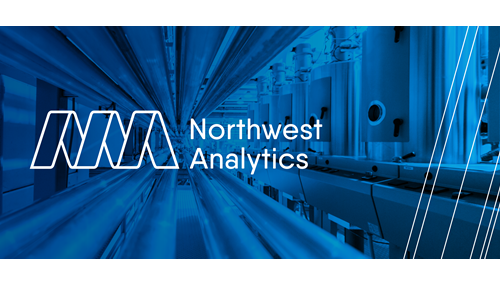4 Keys to Delivering Sustainable and Scalable Manufacturing Analytics
The terms sustainability and scalability could have different implications depending on context in manufacturing. Here, sustainable and scalable manufacturing analytics refer to industrial analytics solutions and the viability of moving from a single proof-of-concept to fully implemented projects across an organization that become an integral part of their manufacturing processes.
Considering the potential investments made in any digital transformation project, the desire for these attributes is completely understandable – if you are going to embark on a digitalization journey, you want it to grow with and across the organization. Despite this, the manufacturing landscape is littered with failed digitalization projects. The key question to answer is “How does an organization ensure that a given digitalization program is successful, able to scale across the company and deliver sustained results over time?”
With multiple decades of working with manufacturers of all sizes across virtually every industry vertical, we have seen first-hand examples of incredible digital transformation successes as well as spectacular failures.
Informed by those experiences and ongoing conversations with customers and industry experts, the four keys to delivering a sustainable and scalable manufacturing analytics project for any manufacturing organization are enabling people; selecting technologies that fit easily with existing systems; scaling both horizontally and vertically; and showcasing successes and wins within the organization.
People
It seems counter intuitive to begin a discussion about the sustainability of a technology-driven program by talking about people, but people are the single most important component of any technology project. They are the leading indicators of program success or failure.
Change management is often cited as one of the most difficult aspects of any new project and understanding the need for an organization’s people to buy-in and believe the rationales and benefits of any new technology directly impacts the chances that the technology will be embraced and used to its full potential – both immediately and over time. Therefore, keeping your people informed and engaged from start to finish as the digitalization project launches and progresses is a key step to a successful outcome.
Technology
Considering the sustainability of the technology itself, any new software at a minimum need to deliver industry-standard connectivity and interoperability with existing systems. This means leveraging the existing technology infrastructure common at every manufacturing site. Technologies should not such specialized programming that it requires code-level expertise to make it work with each new application. A sustainable industrial analytics solution should connect seamlessly with existing equipment. It should enable end users to easily adjust data queries (read: without additional IT resources) as they dial-in process learnings to refine their use of analytics. A user-centric (as opposed to an expert-centric) solution removes barriers related to any refinements, additions and other changes made to maximize the value of the system and facilitate a company’s digital journey as people become more proficient with their use of the system.
Horizontal and Vertical Application
With any digital transformation solution, we need to think in terms of both horizontal and vertical scalability. Horizontal scalability refers to the ability to expand an application of analytics across the different lines in your plant, or across the different plants in your organization, so the whole company can benefit from the individual analytics-knowledge gains made every day.
Vertical scalability refers to the accessibility of the analytics within different layers of personnel, from operators and plant managers to upper-level executives, to make sure the right information is delivered easily to the right people to enable immediate action. Both types of scalability are critically important as the horizontal enables the scalable use of analytics while the vertical enables a company to build a strong, foundational analytics culture that in turn sustains the effective use of analytics over time.
Document Learnings and Showcase Successes
Nothing sells like success. The ability to share learnings and showcase demonstrable successes within a company enhances both the sustainability and scalability of an analytics project.
It’s not uncommon to begin a pilot project to establish the viability and benefits of the effort. Defining what success looks like from the outset enables the project leaders to know when they have achieved their goals.
Every pilot will have challenges. And documenting both the successes as well as the challenges helps build a collection of program knowledge that can be applied to similar efforts on other lines, plants, and sites. This balance of information helps instill confidence in those in the organization who will be responsible for getting others in the organization engaged in and excited about the project helping drive scalability. In turn, that excitement and engagement help sustain the program when it moves decidedly beyond its roll-out stage to become an integral and integrated part of how a company does business. It ensures the benefits will continue to deliver in the long term even as people change jobs, new people are introduced into the program and others retire or leave the company.
Having worked with the world’s most recognized manufacturers for several decades, we see clearly that the organizations with successful manufacturing analytics programs have a strong link between their goals of scalability and sustainability; and place a strong emphasis on the four areas noted above.
If you are interested in learning how the NWA Analytics Knowledge Suite can improve operations by identifying early-warning signals, codify institutional knowledge and amplify process knowledge through your organization, please contact us to speak with one of our industry experts and schedule a demo today.

